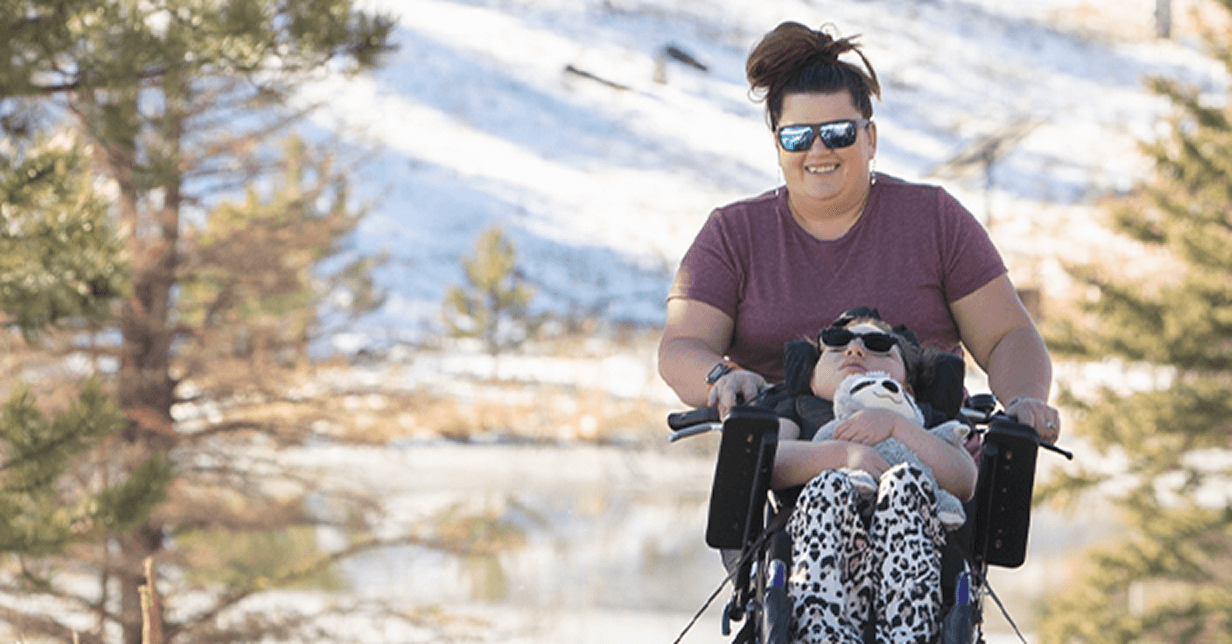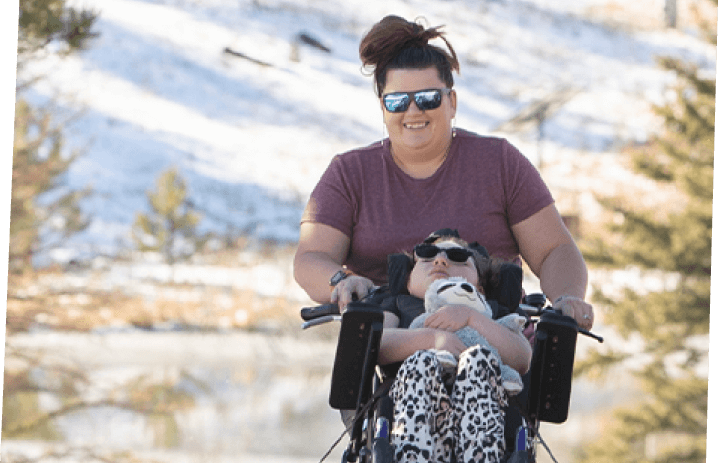

How are we preparing for puberty? We have neurologists on board and ready for when the hormones really start kicking high…
—Jordan, Klohe's mom
Tips for Transitioning to Adulthood
Ages 12-14
Begin having discussions with your child’s primary care physician and neurologist or epileptologist on what to expect and how they can help support the medical transition process.
Ages 15-17
- Look for age-appropriate activities, like Special Olympics, theater, or art programs
- Make sure your child is receiving life skills planning, and find out if there is an age cutoff for any of the other therapies your child receives
- Begin exploring day programming and housing options because waiting lists can be several years long
Ages 18 and up
- Apply for SSI and Medicaid the month after your child turns 18 years of age
- Start the process of transitioning your child from their pediatric primary care provider and neurologist or epileptologist
To see the detailed checklist of transition care, download the C.A.R.E. Binder.
In time, your child may need to transition from pediatric to adult care, which you can plan ahead for. The transition to adult care is a great opportunity for new doctors to reevaluate your loved one’s treatment plan. Luckily, there are transitional care programs in place to help support families making the shift from pediatric to adult healthcare systems.
Here are some steps to navigating this transition:
The pediatric neurology team discusses the expectation of transition to the adult healthcare system. This begins as early as 12 years of age.
The care team will assess your child's treatment plan and development over the course of the next few years, as they begin to identify potential doctors and treatment plans.
Your care team will identify the appropriate providers and plan a time of transfer. They will directly communicate with the new providers until the transition is complete.
Did you know that when your child turns 18, laws of guardianship change despite their having LGS? Make sure to check your state's website for information specifically relating to your family. ![]()
There may come a time when you are unable to fully care for your loved one with LGS. It can be hard to come to terms with your child not living with you, but by planning in advance you can have peace of mind knowing what’s available and which facility is the best fit. You don’t have to start this process alone. There are local agencies and case managers ready to help you discover options available near you. ![]()
An important part of the transition process is financial planning. The LGS Foundation provides resources to help you get started. You can find them here. ![]()
Our C.A.R.E. (Caring for Adults with Rare Epilepsy) Binder is a step-by-step interactive guide with videos and tips from healthcare providers and caregivers like you that helps you prepare your loved one for the transition into adult care.
Start planning with the C.A.R.E. Binder ![]()
Fun Family Activities
Play Board Games
A board game is a great way for your child to interact with others while enjoying time with the whole family.
Participate in Special Olympics
By engaging with groups like Special Olympics or similar programs for adults with LGS, your loved one will have a new way to socialize, which can help them be better prepared for their future ahead.
Movie Night
Vote on a movie the whole family will enjoy! Grab some popcorn and enjoy the time together.
Cook a Meal
What's on the menu tonight? Making even a simple meal together can develop independence as well as create a bonding moment for those involved.
Dance
Music is a favorite in our community. Sitting or standing, dancing may be the perfect way to unwind!
Explore Your Community Center
Most community centers have activities and events for those with special needs. Check yours out, and your loved one just might find a new hobby.
Go for a Group Walk
Does your loved one enjoy being in nature? Even a short walk outside can get the family in one place after a long day.
Take a Trip
Whether it’s a day trip to the zoo or a cruise to a tropical destination, taking a trip might be the refresh everyone could use!

Are you a parent or caregiver of an adult living with LGS? The LGS Foundation has a monthly support group for community members just like you. Join to discuss and navigate the unique struggles of caring for an adult living with LGS.